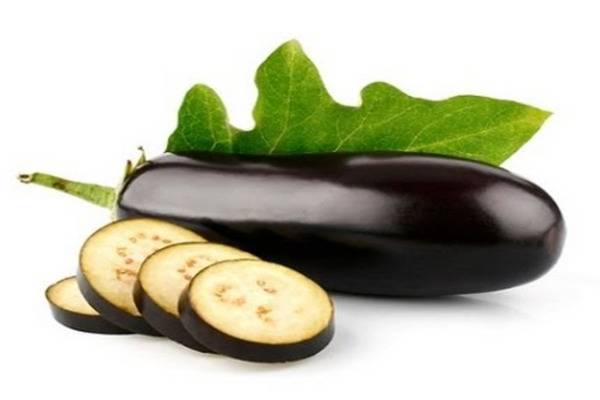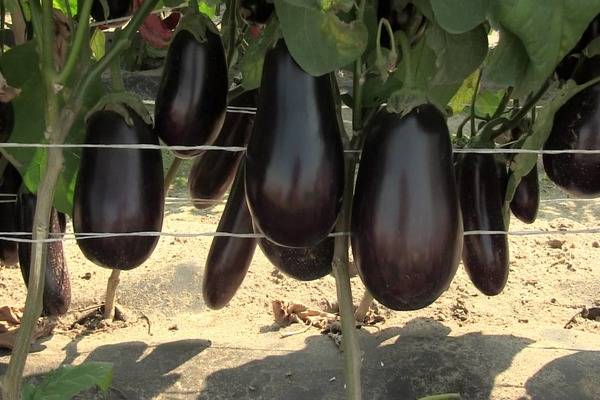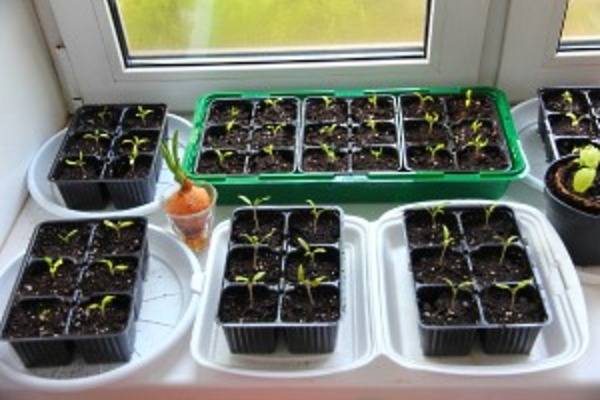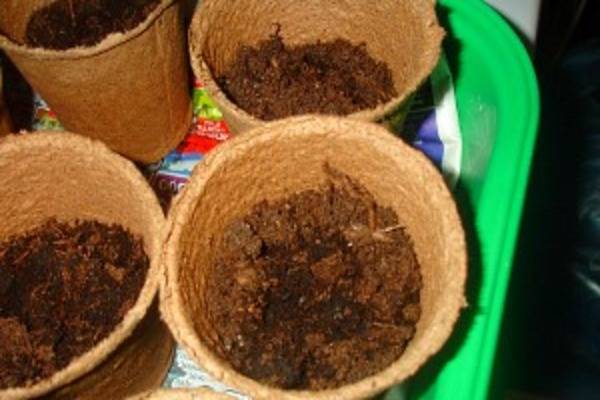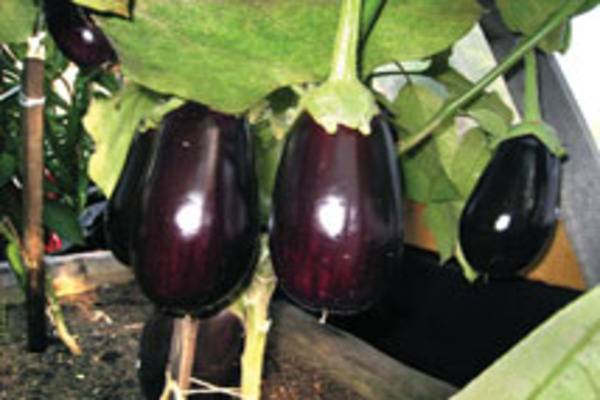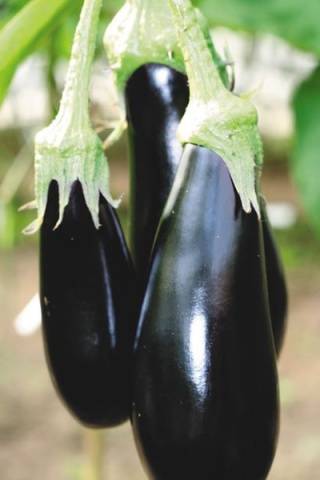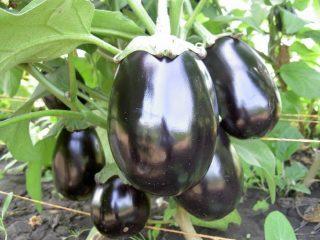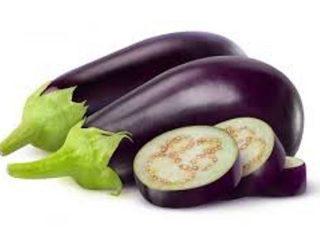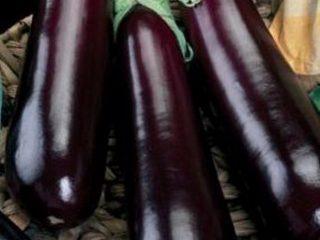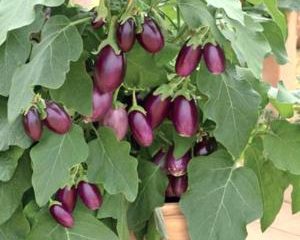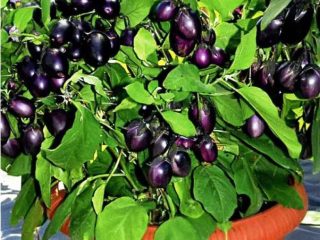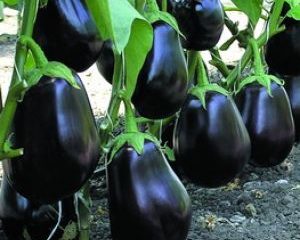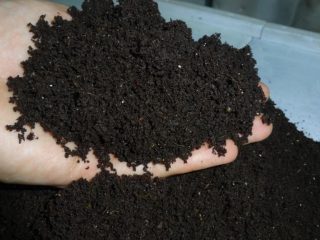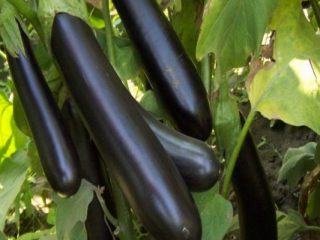Content
Thanks to the variety of eggplant varieties, it is no longer difficult to choose a plant that will grow well in a particular region. Therefore, more and more summer residents began to plant eggplants on their plots.
Description of the hybrid
Eggplant of the Marzipan variety is a mid-season hybrid. The period from seed germination to the formation of ripe fruits is 120-127 days. Since this is a rather heat-loving crop, marzipan eggplant is planted mainly in the southern regions of Russia. The stem of the eggplant grows to a height of approximately 1 m and is stable. However, eggplant of the Marzipan F1 variety must be tied up, since the bush can quickly break under the weight of the fruit. Flowers can be collected in inflorescences or may be single.
Fleshy fruits ripen weighing about 600 g. The size of an average eggplant is 15 cm long, 8 cm wide. The pulp of the fruit is pale cream in color, with a small number of seeds. One bush grows 2-3 eggplants.
Advantages of eggplant variety Marzipan F1:
- resistance to adverse weather;
- neat shape of the fruit and pleasant taste;
- 1.5-2 kg of fruits are collected from the bush.
Growing seedlings
It is recommended to sow seeds in the second half of March; they are pre-prepared before sowing. The grains are first heated for about four hours at a temperature of +24-26˚ C, and then kept for 40 minutes at +40˚ C. For disinfection, the seeds are soaked for 20 minutes in a solution of potassium permanganate.
Then the seeds are placed in a wet cloth and left in a warm place.
Planting stages
To grow seedlings, you can prepare the soil yourself: mix 2 parts humus and one part turf soil. To disinfect the mixture, it is calcined in the oven.
- You can sow seeds in pots, cups, and special containers. The containers are filled 2/3 with soil and moistened. A hole is made in the center of the cup, the germinated seeds are planted and covered with a thin layer of soil. The cups are covered with film.
- When planting seeds of the Marzipan F1 variety in a large box, shallow grooves should be made on the surface of the soil (at a distance of 5-6 cm from each other). The container is covered with glass or film and placed in a warm place (approximately +25-28˚ C).
- As soon as the first shoots appear (in about a week), remove the covering from the containers. Seedlings are placed in a bright place.
- To prevent the seedlings from stretching out, the temperature is lowered to +19-20˚ C. The seedlings are watered carefully so that the soil does not erode.
Diving eggplant
When two true leaves appear on the sprouts, the seedlings can be planted in larger containers (about 10x10 cm in size). Containers are specially prepared: several holes are made in the bottom and a thin layer of drainage is poured (expanded clay, broken brick, pebbles). The soil is used the same as for seeds.
A couple of hours before transplanting, the seedlings are watered with water. Remove Marzipan eggplants carefully so as not to damage the root system. In a new container, the seedlings are sprinkled with moistened soil to the level of the cotyledon leaves.
During this period, the plant must be protected from direct sunlight.
You can water eggplants of the Marzipan F1 variety 5-6 days after picking. Approximately 30 days before transplanting plants to the site, seedlings begin to harden. To do this, containers with plants are taken out into the fresh air. The hardening procedure is carried out by gradually increasing the time the sprouts spend in the open air.
Feeding and watering seedlings
Special attention should be paid to feeding seedlings. The best option is to apply fertilizers twice:
- As soon as the first leaves grow on the sprouts, apply a mixture of fertilizers. Dissolve a teaspoon of ammonium nitrate, 3 tbsp. in 10 liters of water. l superphosphate and 2 tsp potassium sulfate;
- a week and a half before transplanting the seedlings to the site, add the following solution to the soil: 60-70 g of superphosphate and 20-25 g of potassium salt are diluted in 10 liters.
On the plot, eggplant variety Marzipan F1 needs fertilizers (during flowering and fruiting):
- when flowering, add a solution of a teaspoon of urea, a teaspoon of potassium sulfate and 2 tbsp.l superphosphate (the mixture is dissolved in 10 l of water);
- during fruiting, use a solution of 2 teaspoons of superphosphate and 2 teaspoons of potassium salt in 10 liters of water.
When watering, it is important to be careful so that the soil does not wash away and the root system of the bushes is not exposed. Therefore, drip irrigation systems are the best option. Eggplant variety Marzipan F1 is sensitive to water temperature. Cool or hot water is not suitable for vegetables; the optimal temperature is + 25-28˚ C.
At the same time, you should not go too deep so as not to damage the roots of the bushes.
The frequency of watering depends on climatic conditions. Before flowering begins, it is enough to water the Marzipan F1 eggplant once a week (approximately 10-12 liters of water per square meter of area). In hot weather, the frequency of watering is increased (up to 3-4 times a week), since drought can cause the leaves and flowers to fall off. During the flowering period, the bushes are watered twice a week. In August, the frequency of watering is reduced, but at the same time they focus on the condition of the plants.
Eggplant care
Seedlings with 8-12 leaves can already be planted on the site. Since eggplants are a heat-loving crop, Marzipan F1 sprouts can be transplanted into the greenhouse after May 14-15, and into open ground at the beginning of June, when the likelihood of frost is excluded and the soil is well warmed up.
According to reviews from gardeners, the first garter of the stems is done as soon as the bush grows to 30 cm. In this case, the stem should not be tightly tied to the support; it is better to leave a reserve. When powerful side shoots form, they must also be tied to a support (this is done about twice a month).2-3 of the strongest shoots are left on the bush, and the rest are cut off. In this case, on the main stem of the eggplant variety Marzipan F1, it is necessary to pick off all the leaves growing below this fork. Above the fork, shoots that do not produce fruits should be eliminated.
Foliage is also removed to provide better illumination of flowers and reduce the likelihood of eggplants being affected by gray rot. Secondary shoots must be removed.
During the entire period of growth and development of bushes, it is important to remove dried and damaged leaves. At the end of the season, it is advisable to pinch the tops of the stems and leave 5-7 small ovaries, which will have time to ripen before frost. Flowers are also picked off during this period. If you follow these rules, you can reap a magnificent harvest in the fall.
Features of growing eggplant
Most often, a weak harvest is caused by improper care of Marzipan bushes. The most common mistakes:
- with a lack of sunny color or an abundantly overgrown green mass, the fruits do not acquire a beautiful rich purple color and remain light or brown. To fix this, some of the leaves on the tops of the bushes are removed;
- uneven watering of eggplants of the Marzipan F1 variety in hot weather leads to the formation of cracks in the fruits;
- if you use cold water when watering, the plant may shed its flowers and ovaries;
- curling of eggplant leaves into a tube and the formation of a brown border along their edges means a lack of potassium;
- with a lack of phosphorus, the leaves grow at an acute angle relative to the stem;
- if the crop lacks nitrogen, the green mass takes on a light shade.
Proper care of eggplant Marzipan F1 promotes the full development of the plant and ensures a bountiful harvest throughout the season.
